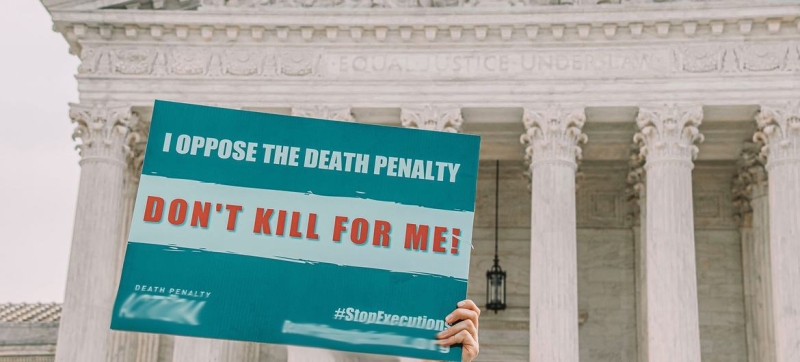
A protest against the death penalty outside the US Supreme Court in Washington. UN experts call for ban on nitrogen gas executions in Alabama Human Rights
Independent UN experts today expressed alarm over an upcoming execution in the United States using nitrogen gas, saying the method could amount to cruel, inhuman or degrading treatment or even torture.
Cary Grayson’s execution, scheduled for November 21, 2024, will be the third time nitrogen gas has been used to carry out a death sentence. Experts have repeatedly expressed concerns about the method.
The first person executed this way, Kenneth Smith, in February 2024, reportedly convulsed for more than 20 minutes as he died.
“We reiterate our call for an urgent ban on executions by nitrogen asphyxiation, which is contrary to international law,” the experts said, reminding the United States of its international obligations as a party to the International Covenant on Civil and Political Rights and the Convention against Cruel, Inhuman or Degrading Treatment or Punishment.
The experts also expressed concern that defendants who challenged the use of this method of execution had to demonstrate that an alternative method was available.
The prohibition of torture or cruel, inhuman or degrading treatment or punishment is absolute and is not subject to alternatives
“We emphasize that the prohibition of torture or cruel, inhuman or degrading treatment or punishment is absolute and is not subject to alternatives,” the UN human rights watchdogs said.
The experts stressed their grave concern that other US states are taking steps to adopt this method of execution.
They also noted lack of effective legal assistance and conditions guaranteeing a fair trial and due process in criminal cases against persons with intellectual and psychosocial disabilities. Grayson suffered from bipolar disorder in his youth.
The statement was made by the Special Rapporteur on extrajudicial or arbitrary executions, Morris Tidball-Binz, the Special Rapporteur on torture and other cruel, inhuman or degrading treatment or punishment, Alice Jill Edwards, and a number of other human rights defenders.
The Special Rapporteurs are not UN staff and are independent from any government or organization. They serve in their individual capacity and do not receive a salary for their work.
